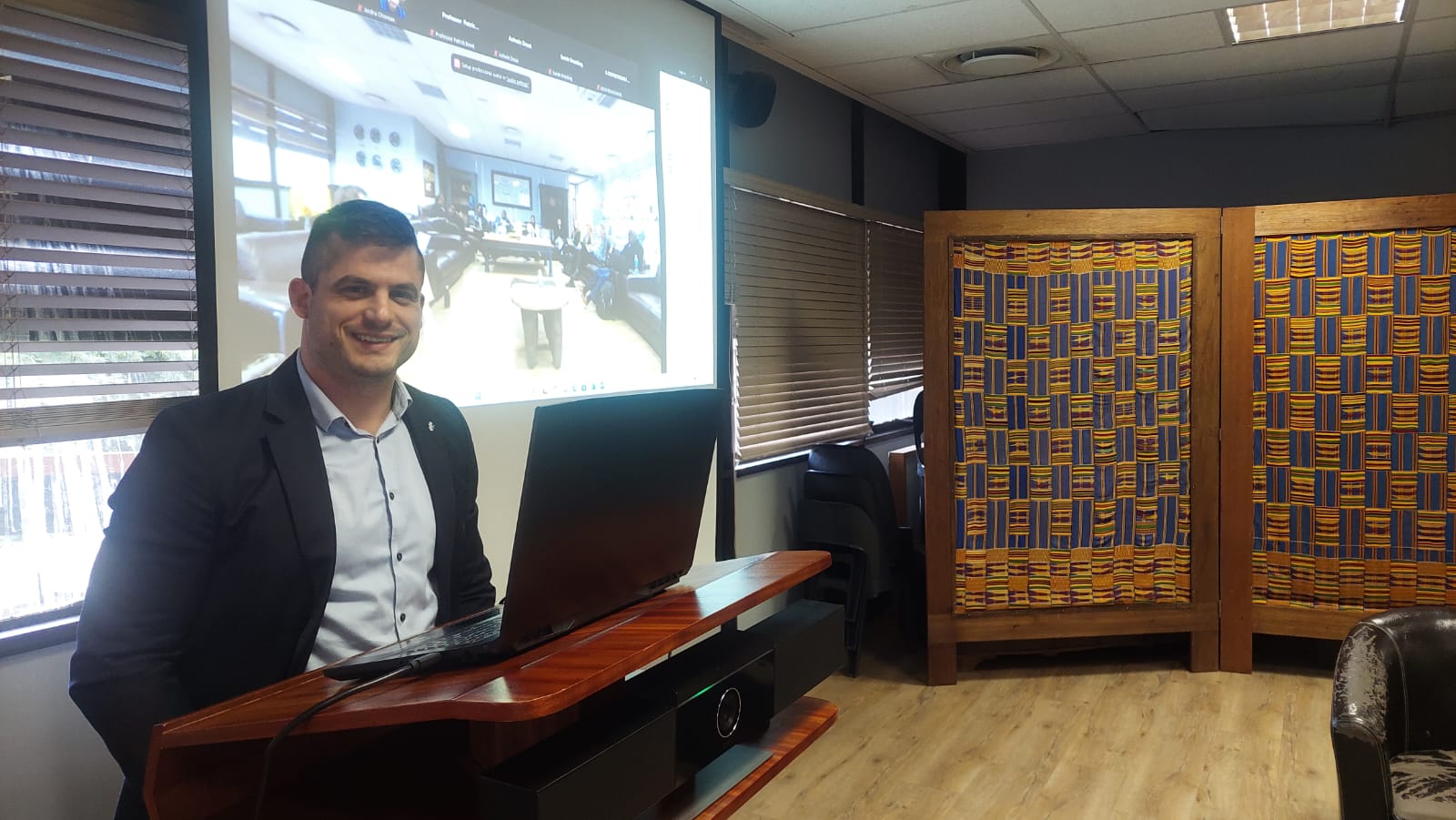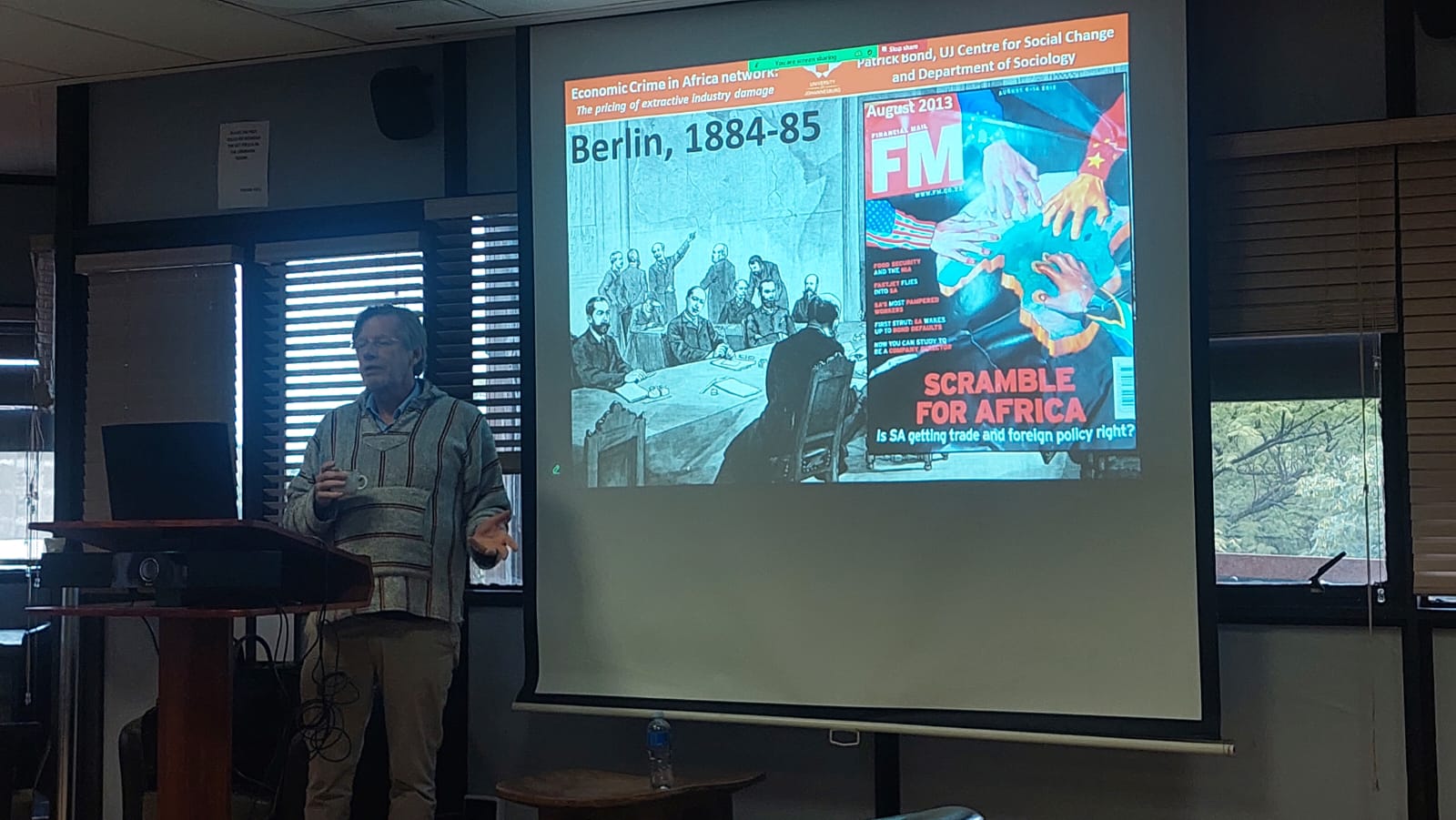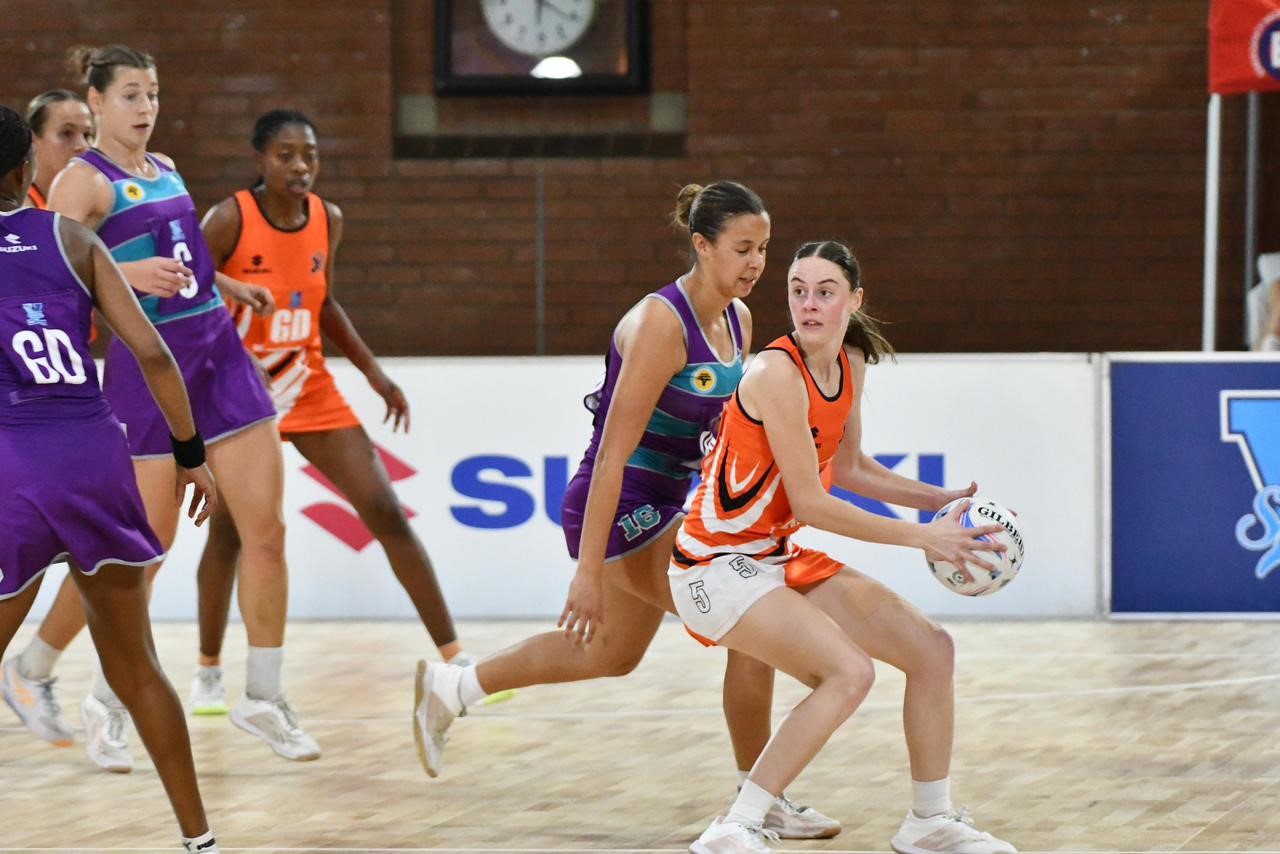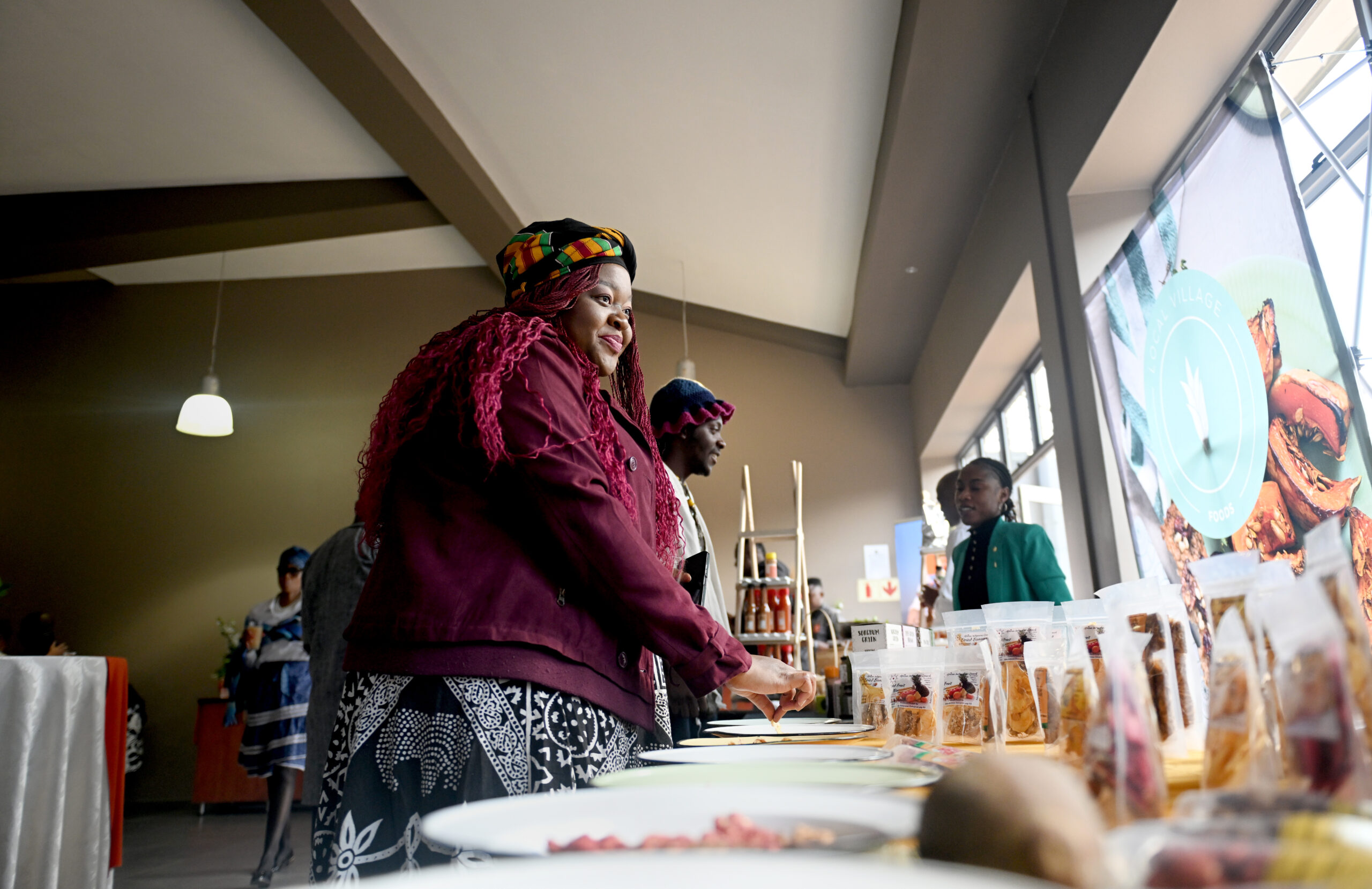In a collaborative effort, the University of Johannesburg (UJ)’s Department of Sociology and SARChI Chair in Social Change and the University of Leeds’ School of Politics and International Studies (POLIS) hosted a workshop at UJ titled ‘Global Research Network on Economic Crime in Africa’ on 23 & 24 April 2025.
The workshop marked a groundbreaking collaboration between universities in the Global South and Global North, an effort that sought to contribute to research, knowledge and discussions on economic crime in Africa.
The meeting was held at UJ’s Faculty of Humanities on the Auckland Park Kingsway Campus. The event was organised by UJ’s Dr Ugljesa Radulovic and Leeds’ Associate Professor Jörg Wiegratz.

Dr Radulovic shared that the importance of the workshop was to bring economic crime researchers and analysts together and establish a long-term oriented, sustainable network that would ultimately support knowledge production and contribute to debates on economic crime in Africa, including matters of crime containment.
“Much research regarding economic crime in Africa has been produced. This has included the examination of fraud, trickery, organised crime, corporate irregularities, and even environmental-economic crime. It is precisely because of an abundance of research and public debate regarding the matter that our collaborative effort brought together this large group of researchers that contributed to cross-country, multi-disciplinary discussions about research, support and collaboration,” he said.
The workshop gathered researchers, analysts and research-oriented practitioners with an interest in economic crime in Africa. Over the two days, colleagues from across the globe joined in (both in-person and online) to discuss their research, the state and trends of scholarship regarding economic crime in Africa, matters of teaching economic crime in universities, and the benefits of a network dedicated to the analysis of economic crime in Africa.
The event was opened by the Vice Dean of Research for the Faculty of Humanities, UJ, Professor Pragna Rugunanan, with her welcoming the attendees to the groundbreaking event. Over 15 institutions from across the world were represented, namely: Brock University; Centre for African Research (Gulu, Uganda); Centre for Policy Dialogue in Zambia; Durham University; Kenyatta University; King’s College London; Land and Equity Movement in Uganda; University of Cape Town; University of Johannesburg; Université Catholique de Louvain; University of Leeds; Makerere University and the Mountains of the Moon University, to name a few. This resulted in robust discussions and a multiplicity of views and opinions. From within UJ, a number of scholars from the Faculty of Humanities, the College of Business and Economics, and the Faculty of Science were present. The workshop was supported by POLIS’ Strategic Research Investment Fund.
Upon conclusion of the workshop, it was determined in an e-vote that the network will be established. It will likely be organised into smaller thematic groups (but under the larger network). The intent of the network is to work together to produce future workshops, seminars, and colloquiums, as well as research collaboration and outputs (in the form of peer-reviewed articles, short reports, etc.). This will be accomplished over an organic, decentralised, long-term progression of the network.

Workshop attendee Jing-Rong Zeng from the Université Catholique de Louvain (Institute of Economic and Social Research, IRES) said participating in the workshop allowed her the opportunity to explore how research about economic crime can impact Africa: “I truly enjoyed the interdisciplinary discussions, which prompted me to think more deeply about how we understand research on economic crime, its landscape, and its impact in Africa. A sincere thank you to the organizers for this valuable network initiative.”
Dr Annette Hübschle, Chief Research Officer of the Global Risk Governance Programme within the Public Law Department at the University of Cape Town, said the workshop had been “very inspiring and insightful”. Dr Suleman Lazarus from the London School of Economics and Political Science (Mannheim Centre for Criminology) noted: “this gathering represents a crucial step toward building a collaborative and interdisciplinary research network that centres African perspectives in the global conversation on economic crime. In light of persistent North–South imbalances in knowledge production, funding, and scholarly recognition, the initiative holds promise for fostering equitable partnerships and amplifying contextually grounded insights into economic crime in Africa.”
The organisers, Dr Radulovic and Associate Professor Wiegratz, shared that they hope that the growth of this network will keep researchers informed about what others write on economic crime in Africa: “we further hope that this network will lead to joint research projects, collegial support and exchange, engagement with actors that combat economic crime in Africa, and further workshops and conferences.”



